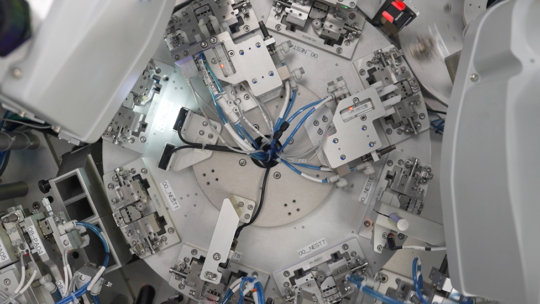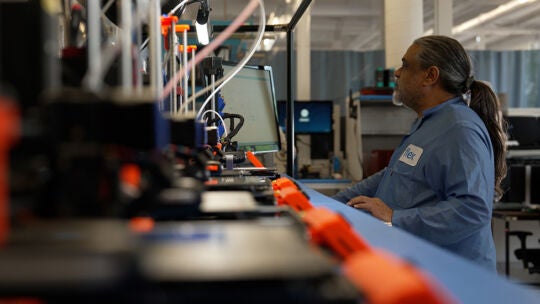
Advanced manufacturing technologies are transforming and defining the factories of the future. Companies can now tap into a wealth of new tools, processes, and skillsets to optimize the manufacturing process, boost innovation, improve quality, reduce waste, and get to market faster. At Flex, electronics and printed circuit board assemblies are critical to the products we make for our customers, and we have strategically invested in Industry 4.0 (I4.0) technologies that optimize electronics and PCBAs.
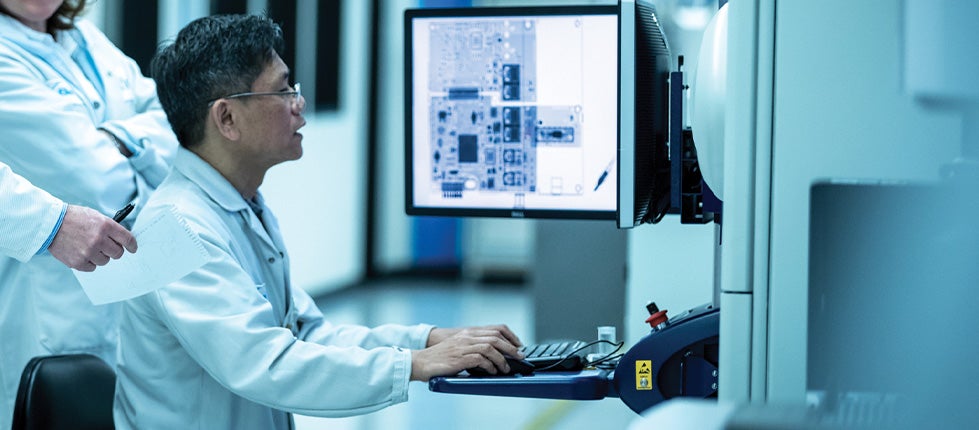
Some technologies that have proved beneficial are the industrial internet of things (IIoT), artificial intelligence (AI) and machine learning (ML). Together they gather and synthesize data to give a computer system its own intelligence to think and solve problems.
How AI is being used in manufacturing
Artificial intelligence and machine learning have many applications in manufacturing, including optimizing factory lines, performing predictive maintenance on machines, managing inventory, preventing bottlenecks, and detecting errors. These programs learn and improve over time, resulting in efficiency and quality gains while empowering workers to make better informed real-time decisions.
The advantages of artificial intelligence and machine learning in manufacturing
In manufacturing, AI/ML can be used to solve for a wide range of issues and business imperatives including:
- Ensuring the highest possible quality: By detecting and addressing product defects and quality issues early in the product lifecycle, manufacturers can avoid bottlenecks and excessive scrap further down the line.
- Keeping operational costs down and production lines efficient: Using AI/ML to perform inspections that are error-prone when relying solely on the human eye can reduce the number of unplanned disruptions to the manufacturing process.
Our advanced manufacturing capabilities, including AI/ML, has enabled us to improve our fabrication, assembly and test processes along with validation using both inspection and test processes for electronics products. We first used AI/ML applications at specific sites to demonstrate their value to existing customers. Since then, we have captured learnings from the initial implementations to deploy to other sites, so that every Flex factory around the world can advance its operations and empower customers to be more agile, efficient, and competitive.
How Flex uses AI/ML to validate reordering testing steps
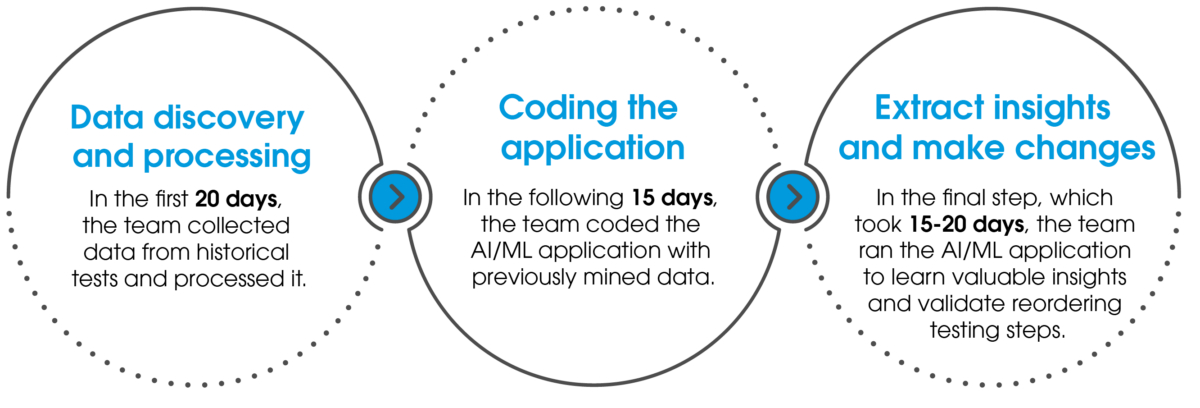
AI/ML eliminates bottlenecks in PCBA testing
Historically, the PCBA testing process was onerous and time intensive. For one advanced technology customer it consisted of four stages, with one section comprising over 50 steps and lasting more than two hours. If a test failed, the product had to be sent back to the factory floor for debugging before undergoing the entire testing process again. Failing late in the process would add significant manufacturing time and create bottlenecks in throughput.
Our team wanted to find a way to make the PCBA testing process more efficient and reliable. Working with this customer at our Guadalajara, Mexico site, we knew that we could build greater trust and deepen our partnership by influencing the product and test design to be more efficient.
The result was an AI/ML application that learned from testing data and was able to reorder and prioritize test steps that were failing the most — putting them earlier in the process so that tests would not fail at the last step — and those that were most important to the functioning of the PCBA.
The development and implementation of this solution took only two months, but it enabled Flex to reduce test time, identify redundant tests, and reduce the overall number of steps in the PCBA testing process. The customer working with our Guadalajara site achieved impressive results, including:
30%
Overall reduction
in test time
50%
Reduction of test time in
the case of failures
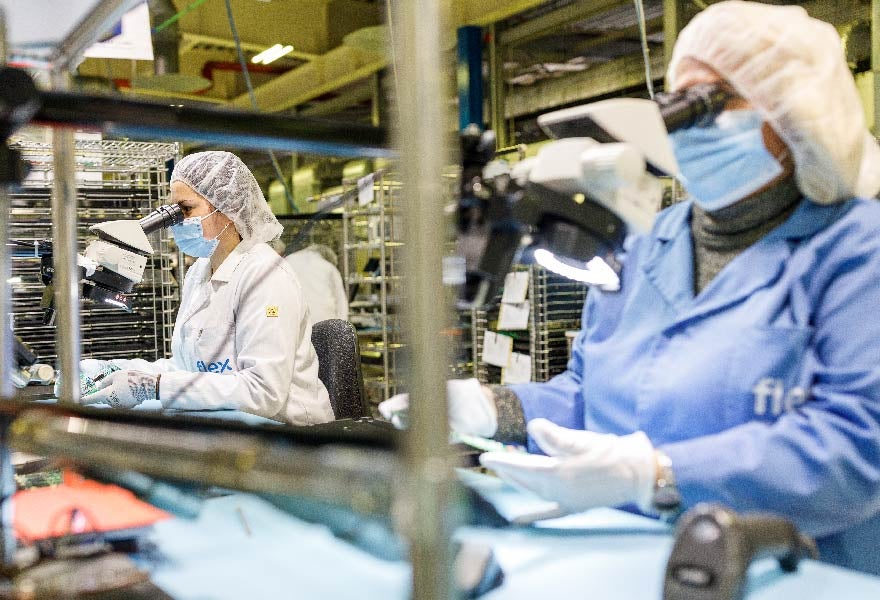
The success at the Guadalajara site led the Flex team to deploy the AI/ML solution to a second site in North America.
At this site, legacy PCBA test times were 10–25 hours, but with the proposed AI/ML solution, we have seen a 20-25% reduction in test time.
The second site has also improved throughput and is now able to produce and test 35% more electronics daily.
AI/ML improves quality inspections in electronics manufacturing
AI/ML has also been used to significant effect for electronics product vision inspections. Traditionally, human workers inspected products as they traveled through the manufacturing line, but as product demands and timeline speeds increased, it became more difficult to get quality inspection right. Inspection criteria became increasingly wide-ranging, covering screws, wires, labels, and defects to other vital components. Over a shift, workers also experienced visual fatigue, resulting in more errors.
In 2022, Flex implemented two AI/ML based vision detection and inspection systems on the factory floor. This system used trained neural networks to detect defects that were difficult to see with conventional vision systems or by human inspectors. After the system was deployed, it continued to learn, getting more intelligent and catching more errors over time.
The system was trained to spot key error groups, including:
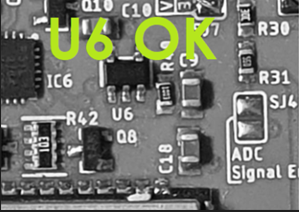
Image classification whether the picture is correct or incorrect
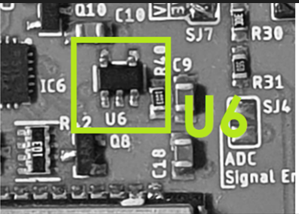
Object detection whether there is an identifiable defect, such as a scratch
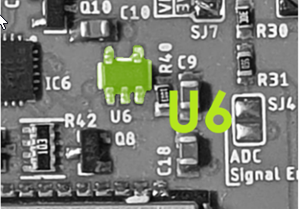
Segmentation
beyond identifying and locating a defect, providing its shape and impact
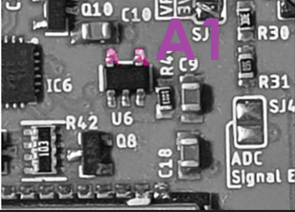
Anomaly detection
whether there is an anomaly from the reference picture
AI/ML and the future of electronic manufacturing
This new inspection system resulted in greater performance and yield, while enabling us to reduce scrap by identifying issues before a part was sent to another step in the line.

By eliminating legacy inspection stations, Flex was also able to optimize factory floor space and make room for other lines and solutions.
In one deployment, implementing the tool to inspect nuts, the team saw improved product yield by 97%, payback from the initial investment in less than a month, and efficiency improvements of over 30%.
In another site, implementing the tool to improve efficiency and reduce the costs of four products with sheet metal components, the team saw efficiency improvements of 28% and ROI of 388%.
The most significant impact of the AI-based inspection systems was its impact on the inspection staff, who were up-leveled to manage the innovative technology. This has increased employee morale and provided employees with more fulfilling career opportunities.
This solution has been so successful to date that we have deployed AI/ML product inspections at 15+ sites, with the goal of expanding the technology more broadly in the future.
Continuous learning and innovation in electronic manufacturing
At Flex, we are ever at the forefront of I4.0 technologies, seeking new ways to help our customers create the extraordinary. Our engineers are innovating with the latest technologies, including AI/ML methodologies, to develop the tools and resources needed to continuously optimize production operations. As with any other technological investment, manufacturers must identify the right use cases for the business to get the most ROI from the system implementation.
Through our implementation, we learned the importance of using good datasets and applying the right analytical methods against that data to train the machine. As we’ve deployed these use cases for our business, we have also bolstered our overall digitization efforts, since system interoperability is a must-have. If the AI/ML is only operating within a “closed loop” system, it cannot continue to update and improve to its full potential.
Just like artificial intelligence and machine learning, our team improves over time, collecting more data and learning from experience. That’s how we’ve been able to execute Industry 4.0 solutions to sites around the globe. We continue to seek new ways to deploy advanced technologies to drive real-world business impact for our customers.

